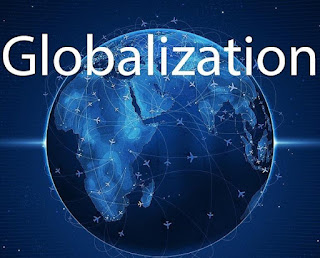Advantages and Disadvantages of using (a) Broad and Inclusive definition (b) Narrow and Exclusive definition of Globalization
The idea of globalization is not new to us. This concept has been practicing since ancient times where some of the traders would travel other places to buy goods and services that were valuable and rare to sell and try in their area. In 19th century, the advancement of technology and communication brought by Industrial Revolution has been a great contribution since it improve the trade across boarders.
In the present century, “Globalization” is the word we used to describe the growing interdependence of the world’s economies, cultures, and populations, brought about by cross-border trade in goods and services, technology, and flows of investment, people, and information.
Now, as time passed there are lot of views rise about globalization. The definition of globalization in the literature shown that the term “globalization” can be characterized in two ways, (a) Broad and Inclusive definition and (b) Narrow and Exclusive definition. Both type of views have their advantages and disadvantages in a globalized world.
This blog will discuss and give information about the advantages and disadvantages of using (a) broad and inclusive definition (b) narrow and exclusive definition of globalization.
Let’s first define the definition of (a) Broad and Inclusive and (b) Narrow and Exclusive definition of globalization.
Broad and Inclusive Globalization
- The ability for persons or reasons behind a given growth in a country to benefit as well is described in a broad and inclusive definition. It allows everyone to take part in management in such way that a country’s viewpoints or plans are represented in its policies.
Narrow and Exclusive Globalization
- A narrow and exclusive definition of globalization focuses on one spot, particularly its own. It means that the focus of globalization would be limited to the country alone.
Now, let’s point out the advantages and disadvantages of Broad and Inclusive definition of Globalization.
Advantages of Broad and Inclusive definition of Globalization
- More perspective point of reference when it comes to how we all became connected to each other.
- It can distinguish all the benefits
- Equal and secure opportunities for everyone
- Has the advantage of seeing further ahead to avoid future problems.
- Growth for the countries
Disadvantages of Broad and Inclusive definition of Globalization
- Have the potential to disregard its own people at certain times because of its tendency to look outward.
- Reshaping of government institutions to cater for everyone
- Economic and social processes need to be reorganized
Next to be discuss is the advantages and disadvantages of Narrow and Exclusive definition of Globalization
Advantages of using Narrow and Exclusive definition of Globalization
- It has the support of its own constituents and is commended for taking a protectionist stand.
- Focuses on improvement of the country
- Gives importance to the people inside the country
- Enhancement of the policies in the country
Disadvantages of Narrow and Exclusive definition of Globalization
- It has a very limited point of view because of the lack of reference.
- It fails to recognize the role of other parties as a potential partner.
- It usually starts the trade wars because it excludes all others.
Globalization has increased the development of world’s economic prosperity and opportunities. Civil freedoms in countries around the world have been increased as a result of globalization’s more effective use of resources. Further more, countries that participate in free trade make more money.
Hoping that this blog gives you information and understand more the broad and inclusive and narrow and exclusive definition of globalization.



Comments
Post a Comment